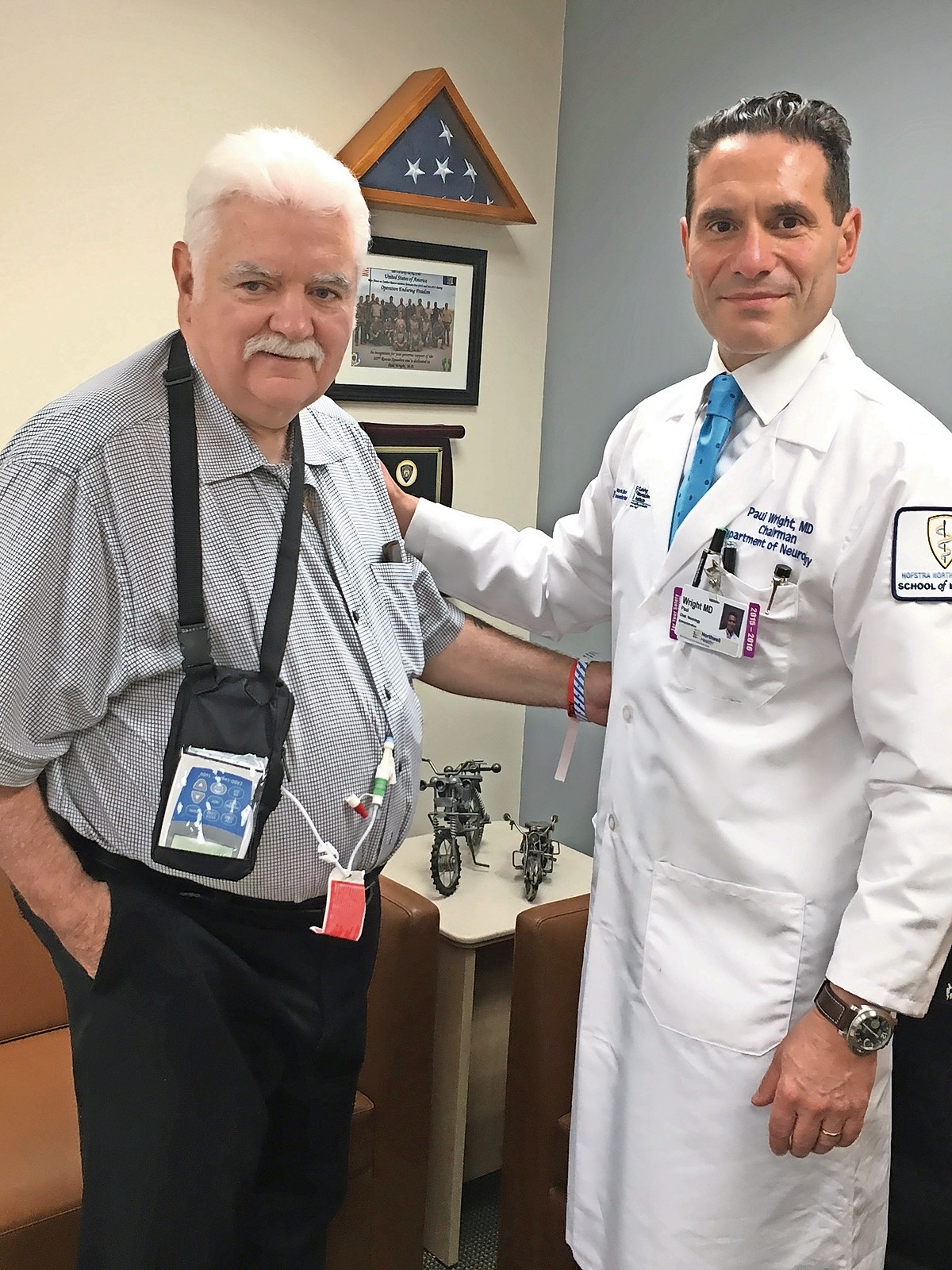Former Rockville Centre police commissioner receives new Parkinson’s treatment
Jack McKeon, 64, has dedicated his life to public service. He spent 37 years at the Rockville Centre police department, 19 as its commissioner, served two years active duty in the military, was a Commissioned Officer in the United States Naval Reserve and served as a credentialed federal agent with the US Naval Criminal Investigative Service (NCIS), involved with counter-terrorism duties. In 2009, he was diagnosed with Parkinson’s disease (PD). He retired from the Rockville Centre police department a year later.
But that was not the end of his story.
On May 26, McKeon was one of the first few patients on Long Island to receive a recently approved treatment for PD at North Shore University Hospital, a member of Northwell Health. The procedure was performed by Northwell Health gastroenterologists, Jaydeep Kadam, MD and Kostas Sideridis, DO.
The half-hour procedure involves the surgical insertion of a stomach tube placed in the small intestine that is connected to an external pump. The patient controls an FDA- approved prescription medication called Duopa that is continuously delivered for up to 16 hours a day.
“Mr. McKeon was initially treated with over a dozen medications to help control his PD, but the release of medications was not consistent enough throughout the day, causing him at times to be unable to walk,” said Paul Wright, MD, chair of neurology at North Shore University Hospital and LIJ Medical Center and McKeon’s neurologist. “He was an ideal candidate to receive this innovative treatment that allows him to now have better control of medication delivery in a more sustained manner. He will no longer have to worry about the timing of taking oral medications and how long the medication benefits will last, as the pump delivers a continuous release of Duopa into the body throughout the course of his waking hours.”
Going into the procedure, McKeon said he had trouble even getting out of a chair. A half hour after the surgery was done, he was walking around the halls of the hospital without any assistance.
After the procedure, a patient is scheduled for a post-op office visit with his/her neurologist who will program the pump and adjust dosage of Duopa that meets the needs of each individual patient. Patients will be asked to keep track of any symptoms so that the dosage can be increased or decreased accordingly.
The daily routine for a patient who received Duopa treatment involves the patient connecting the Duopa cassette to the pump and starting the pump to receive a morning dose. The continuous dose will start automatically and continue for up to 16 hours. At bedtime, the patient disconnects the pump and flushes the tube.
For McKeon, dealing with his Parkinson’s disease has been one of the most challenging times in his life. “I never wanted to retire, but when I was diagnosed with PD, it derailed everything,” he said. “But now that I have received this new treatment to control my PD, I am looking forward to some degree of normalcy in my life.”
For more information about the Duopa treatment, call Northwell Health’s Movement Disorders Center at 516-325-7050.

 47.0°,
Fair
47.0°,
Fair 




